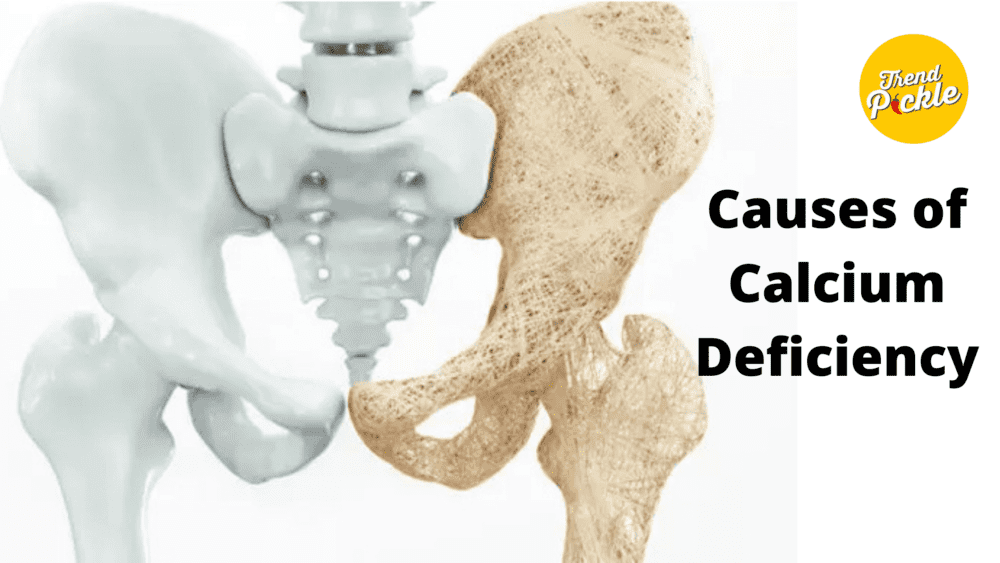Calcium is a significant mineral for maintaining the overall health of the body. Calcium is vital for bone health. It is the most abundant mineral in the human body. 99% of calcium is present in the teeth and bones of the human body. Calcium imparts strength to teeth and bones and also plays a crucial role as a messenger in cell-signaling pathways throughout the body. It is mandatory for normal cell functioning, the transmission of nerve signals, secretion of hormones, blood coagulation, muscle contraction, and muscle relaxation. Our body cannot produce calcium on it’s own. Thus, it becomes important for us to get enough calcium from the food we eat. When we do not get the required amount of calcium that our body needs, it is taken from our bones. This is fine once in a while, but if it happens too often, bones get weak and can break easily. Deficiency of calcium can lead to various diseases.
Some Common Causes of Calcium Deficiency

1. Higher demand for calcium requirement by the body due to stages/phases such as puberty, breastfeeding, pregnancy etc.
2. Dietary intolerance – Lactose intolerant or people allergic to dairy products
3. Higher phosphorus level
4. High consumption of alcohol or coffee
5. Hormonal disorders
6. Hormonal changes- Decline in estrogen levels (menopause)
7. Kidney diseases
8. Thyroid diseases
So here are 20 Signs that you might be calcium deficient

1. Fainting
2. Difficulty swallowing
3. Chest pains
4. Numbness and tingling sensations around the mouth or in the fingers and toes
5. Muscle cramps, particularly in the back and legs. Low calcium levels have been linked to severe PMS.
6. Brittle nails
7. Heart Failure
8. Voice changes due to spasm of the larynx
9. Irritability, impaired intellectual capacity, depression, anxiety, and personality changes
10. Fatigue
11. Seizures
12. Coarse hair
13. Wheezing
14. Psoriasis
15. Dry skin
16. Chronic itching
17. Tooth decay-due to weak roots, irritated gums, and brittle teeth
18. Numbness or tingling in the extremities
19. Muscle weakness
20. Cataracts
Rich Sources of Calcium

1. Cheese
2. Yogurt
3. Milk
4. Sardines
5. Dark leafy greens like spinach, kale, turnips, and collard greens
6. Fortified cereals such as Total, Raisin Bran, Corn Flakes
7. Fortified orange juice
8. Soybeans
9. Fortified soymilk
10. Enriched breads, grains, and waffles
Significance of Calcium

1. Calcium contributes to the development of the bones of the children during their growth years. So, After a person stops growing, calcium continues to help maintain the bones and slow down bone density loss.
2. Calcium plays a major role in blood clotting.
3. Calcium relaxes the smooth muscle that surrounds blood vessels.
4. Calcium enables the efficient working of various key enzymes.
5. various studies have revealed that people consuming enough calcium a have low risk of colorectal adenomas, a type of non-cancerous tumor. Also, women have a lower risk of developing conditions involving high blood pressure during pregnancy.
Preventing Calcium Deficiency
The easiest way to prevent calcium deficiency is to start with a calcium-rich diet. Regular exercising and maintaining proper body weight are also essential. If required, you can also consult with a nutritionist who can help you plan your meals and give you suggestions related certain food intake as per the nutrient/vitamin requirement of your body.

